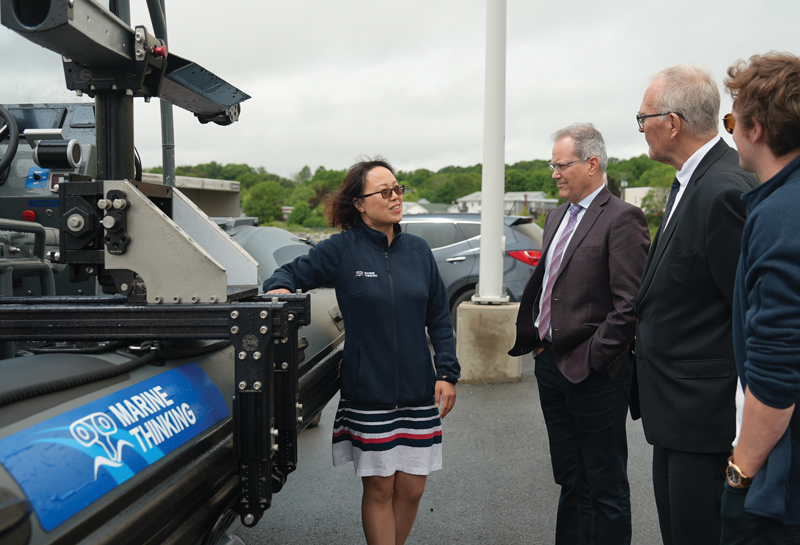Account Login
Don't have an account? Create One

When Wenwen Pei got into the ocean tech business, she had an ambitious vision: Developing autonomous ocean-going surface vessels (or USVs) for uses that just might “change the sector, and maybe change the world.”
An engineer by training, Pei—CEO of the small Halifax-based startup Marine Thinking—describes herself as “passionate about the environment and the ocean.”
The company sells a suite of its own USVs, but its main focus has evolved to a software and hardware kit called Marine Tensor that can, she said, “convert existing vessels into autonomous vessels” using an AI-driven communication and navigation system.
From the company’s modest table at the PIER, a startup hub on the Halifax waterfront beside a cruise ship berth, Pei, dressed in yoga pants, rattles off some of the potential uses for Marine Thinking’s products. It’s an extensive list, including environmental monitoring, ocean exploration, cleaning up ghost fishing gear, surveying sediment in wastewater lagoons and scanning underwater infrastructure for potential flaws.
But there’s one field Pei had never considered: military and defence capabilities. That is, until NATO came calling.

Continue reading this story: click below to login/subscribe
Login or SubscribeComment policy
Comments are moderated to ensure thoughtful and respectful conversations. First and last names will appear with each submission; anonymous comments and pseudonyms will not be permitted.
By submitting a comment, you accept that Atlantic Business Magazine has the right to reproduce and publish that comment in whole or in part, in any manner it chooses. Publication of a comment does not constitute endorsement of that comment. We reserve the right to close comments at any time.
Cancel